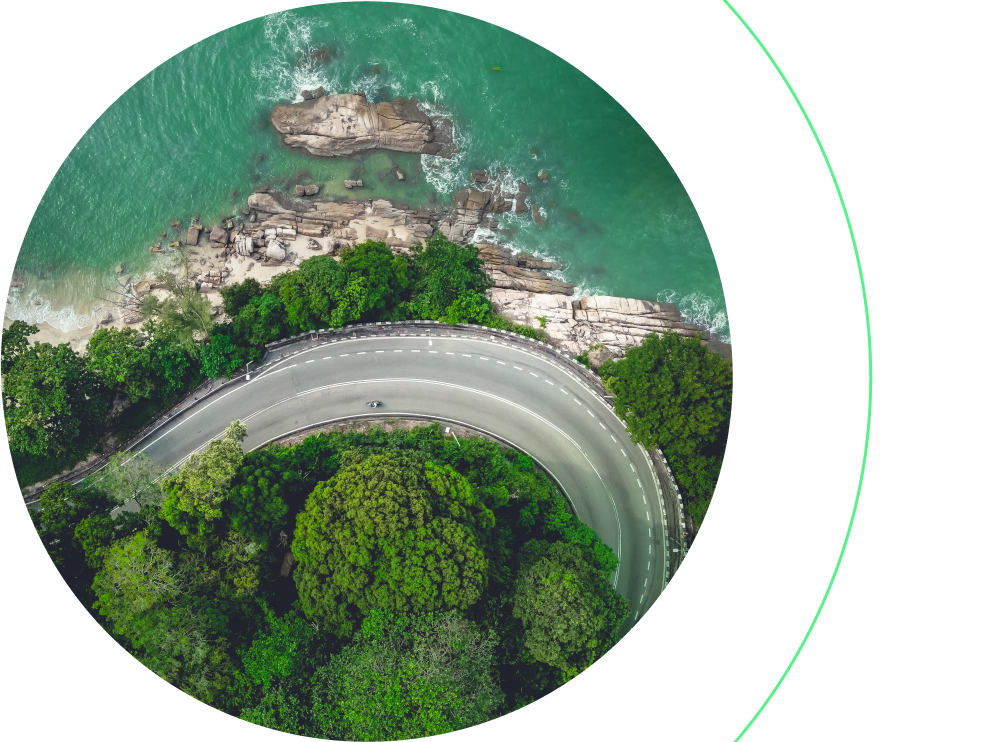We winnow down the investible universe to those companies with solid financial characteristics. To make the cut, companies generally must have 1) a strong balance sheet, 2) reliable cash flow, and 3) consistent earnings and dividend growth.
Rondure Global was designed to identify attractive emerging markets companies early in their life cycle.
Our research process strives to find diamonds in the rough, establish positions before they are broadly owned, and let clients benefit from the potential power of long-term growth.
We believe...
Active stock picking works better in less efficient markets, so we’ve specialized where we believe we can add the most value.
We believe...
A low-standard-deviation portfolio may help manage against downside risk.
We believe...
Broadening our scope of companies improves risk-adjusted returns.
We believe...
High-quality companies win over time.
We believe...
Valuation sensitivity is paramount in mitigating downside risk.
We believe...
It's beneficial to buy companies when they are out of favor.

We invest in companies across the developing world that have a wide economic moat but trade at what we believe to be an attractive valuation.
We invest in companies across the developing world that have a wide economic moat but trade at what we believe to be an attractive valuation.
We are a team of international investing veterans who have managed risk across market cycles.
Digital tools funnel us to what we see as a competitive array of companies and help us assess valuations.
We tune out the noise by focusing only on the companies that we believe are among the top, aiming to deliver alpha by buying them when they are out of favor.
Our stringent filtering process concentrates our attention on the relatively few companies that we believe merit our clients’ capital.
We winnow down the investible universe to those companies with solid financial characteristics. To make the cut, companies generally must have 1) a strong balance sheet, 2) reliable cash flow, and 3) consistent earnings and dividend growth.
We look for well-governed companies with a competitive moat, a business model we believe we understand, and a local political situation that appears suitable to growing capital.
This phase includes building a financial model and weighing inclusion in the portfolio based on a company’s business and financial quality, valuation, growth prospects, and earnings momentum.
Only companies that meet high hurdles for financial quality are considered for our portfolios.
Valuation discipline matters. Additionally, we prefer companies that regularly return capital to shareholders.
We spread our bets across countries and currencies. The breadth of our portfolios helps mitigate liquidity risk in our view.
Definitions:
Standard Deviation: a statistic that measures the dispersion of a dataset relative to its means and is calculated as the square root of the variance.
Volatility: a statistical measure of the dispersion of returns for a given security or market index.
Diversification: an investment strategy based on the premise that a portfolio with different asset types will perform better than one with few.
Margin of Safety: a principle of investing in which an investor only purchases securities when their market price is believed to be significantly below their intrinsic value.
Contrarianism: an investment style in which investors go against prevailing market trends by selling when others are buying and buying when most investors are selling.
Out of the Favor: an unpopular industry or stock.
Economic Moat: a concept referring to a business’s ability to maintain competitive advantages over its competitors.
Alpha: the portion of a portfolio’s return that cannot be attributed to market returns.
©2024 Rondure Global Advisors, LLC. All rights reserved.
An investor should consider investment objectives, risks, charges and expenses carefully before investing. Click the link to obtain a prospectus for the Rondure Funds, which contains important information about risk factors and disclosures, or call 1.855.775.3337. Read the prospectus carefully before investing in the Rondure Funds.
IMPORTANT RISKS
Any investing, including in mutual funds, involves risks and loss of principal is possible. Investing in international or global funds, small- or micro-cap funds, or related strategies will be more volatile and the risk of principal loss could be greater than investing in domestic, large-cap or more diversified funds or strategies. Investing in foreign securities also entails special risks, such as currency fluctuations and political uncertainties, which are described in more detail in the prospectus. Investments in emerging markets are subject to greater risk than investments in the United States or in foreign countries with more established economies and securities markets.
Rondure Funds are distributed by Northern Lights Distributors LLC. Member FINRA/SIPC.
Investment advisory services for the Rondure Funds and related separately managed accounts are provided by Rondure Global Advisors, LLC, a federally registered investment adviser. Northern Lights Distributors LLC is not affiliated with Rondure Global Advisors, LLC.
The adviser’s judgments about the growth, value or potential appreciation of an investment may prove to be incorrect or fail to have the intended results, which could adversely impact the Fund’s performance and cause it to underperform relative to other funds with similar investment goals or relative to its benchmark, or not to achieve its investment goal.
Diversification does not ensure a profit or guarantee against loss.
Past performance is no guarantee of future results.
Value investing involves buying stocks that are out of favor and/or undervalued in comparison to their peers or their prospects for growth. Typically, their valuation levels are lower than those of growth stocks.
Grandeur Peak Global Advisors is an equity partner of Rondure and provides all back- and middle-office functions for Rondure via a shared services agreement. These services include operations, trading, compliance, IT and legal.